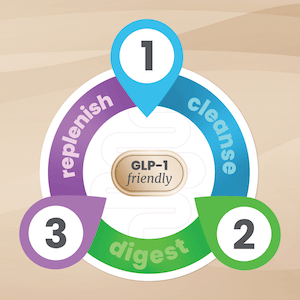Medical Data sourced from National Institute of Health
Written by Lauren Curl-Ferrell on April 19, 2021
Stress is a very common experience and feeling amongst most people.
A 2020 survey conducted by the American Institute of Stress resulted in a high number of people saying that they have had a significant amount of stress during this most recent year.
According to The American Institute of Stress:
- About 33 percent of people report feeling extreme stress
- 73 percent of people have stress that impacts their mental health
- 48 percent of people have trouble sleeping because of stress
- 77 percent of people experience stress that affects their physical health
Stress can lead to a number of health problems and many diseases and finding and practicing relief for that stress is crucial for the longevity of good physical and mental health.
Top Causes of Stress
Money
Money can put a heavy feeling of stress on your life. 72% of adults report feeling stressed about money. We worry about paying rent, or we feel pressured by debt problems and this is pretty significant and it is no wonder that financial stress is linked to so many health issues.
Family duties
An online survey by the American Psychological Association (APA), conducted by Harris Interactive in August 2010, found that 73% of parents report family responsibilities as a significant source of stress.
Relationships
Love is pretty great, but there are definitely some causes of stress in relationships. Thoughts about the uncertainty of the future, getting into arguments and disagreements, and lack of effort from a partner are three common relationship triggers for stress.
Job stability and work
According to a survey conducted by the CDC:
-
40% of workers reported their job was very or extremely stressful
-
25% view their jobs as the number one stressor in their lives
-
75% of employees believe that workers have more on-the-job stress than a generation ago
-
29% of workers felt quite a bit or extremely stressed at work
-
26% of workers said they were “often or very often burned out or stressed by their work
-
Job stress is more strongly associated with health complaints than financial or family problems
The economy
Home prices, stocks, retail sales, gas prices, all of these things are stressors within the economy.
Personal and physical safety
We can walk through life and worry about everything. Sometimes a lack of a sense of purpose or good feelings of hope can cause major stress. This can hinder our strength in good thoughts on personal safety.
Health problems
Having stress can cause health problems and health problems can cause stress. This seems like an endless cycle that one can't ever escape.
Top Symptoms of Stress
Many side effects can happen when stress is present.
Fatigue
That overall feeling of tiredness.
Anger and irritability
These can also lead to sleep problems.
Muscle tension
This is the body's way of guarding you against injury and pain.
Upset stomach
Stress can influence the nerves in your digestive tract and cause an upset stomach.
Gut problems
Long term stress can cause constipation, diarrhea, and indigestion.
Depression
Chronic stressful situations can increase the risk of developing depression.
Lack of motivation
Practicing self compassion can help return motivation to your life.
Weight fluctuation
Cortisol, which is a stress hormone, can cause a rise in weight.
Headaches
They are more likely to occur when stress is present.
Health Problems that Stress Can Lead To
- Heart disease
- Diabetes
- Depression
- Anxiety
- High blood pressure
Finding relief from stress
Gaining control of the stress in your life can be effective and productive. Here are our best ways to relieve stress from the daily challenges that you may face.
1. Writing
Practice utilizing a bullet journal, or just jotting down your thoughts and feelings. Sometimes even writing yourself a letter can be a great resource of stress relief.
2. Take a stress relieving natural supplement
Stress Away is high potency Vitamin B-Complex with Vitamin C. When the body undergoes physical or emotional stress, B-vitamins are depleted quickly. When the body is forced to withstand these demands, it greatly increases the demand for B Vitamins. Coupled with Vitamin C, research has shown that a supplemental B-Complex can help alleviate the symptoms of stress and anxiety.
3. Herbal tea
Peppermint, chamomile, and lavender are our go to's.
4. Exercise
Practice a light movement exercise like yoga to help reduce stress.
5. Meditation
Calmly find a space to sit. Close your eyes, and practice breathing in and out slowly.
6. Reduce caffeine intake
Reducing the amount of caffeine you intake can be HUGE in reducing feelings of stress.
7. Spend time with friends and family
Family and friends can help release those endorphins to help feel happy and free of stress. Even if all you can do is pop off a text, or a DM, or a message - connecting with the people you love the most will help.
8. Practice saying "no"
If saying "yes" to everything is causing stress, practice saying "no."
9. Spend time with a pet
Cuddling with a pet can help release good feeling endorphins.
10. Set up a relaxation practice
Get into a routine to reduce stress. For example, every night, develop an calm nighttime routine. Read a book for 20 minutes, enjoy a cup of tea, practice affirmations, take a bath, etc.
Stick with that routine and watch the stress slip away.
Overview
Stress can definitely feel overwhelming. With a steady practice and focusing on finding relief, getting rid of daily stress can be effectively dismissed. If your stress and anxiety is causing a major decline or you're unable to cope with daily life, you should speak to a doctor in regards to setting up anti-stress and anxiety treatment.
Stress is a very personal feeling and symptoms and treatments can vary widely amongst those who are experiencing it.


















